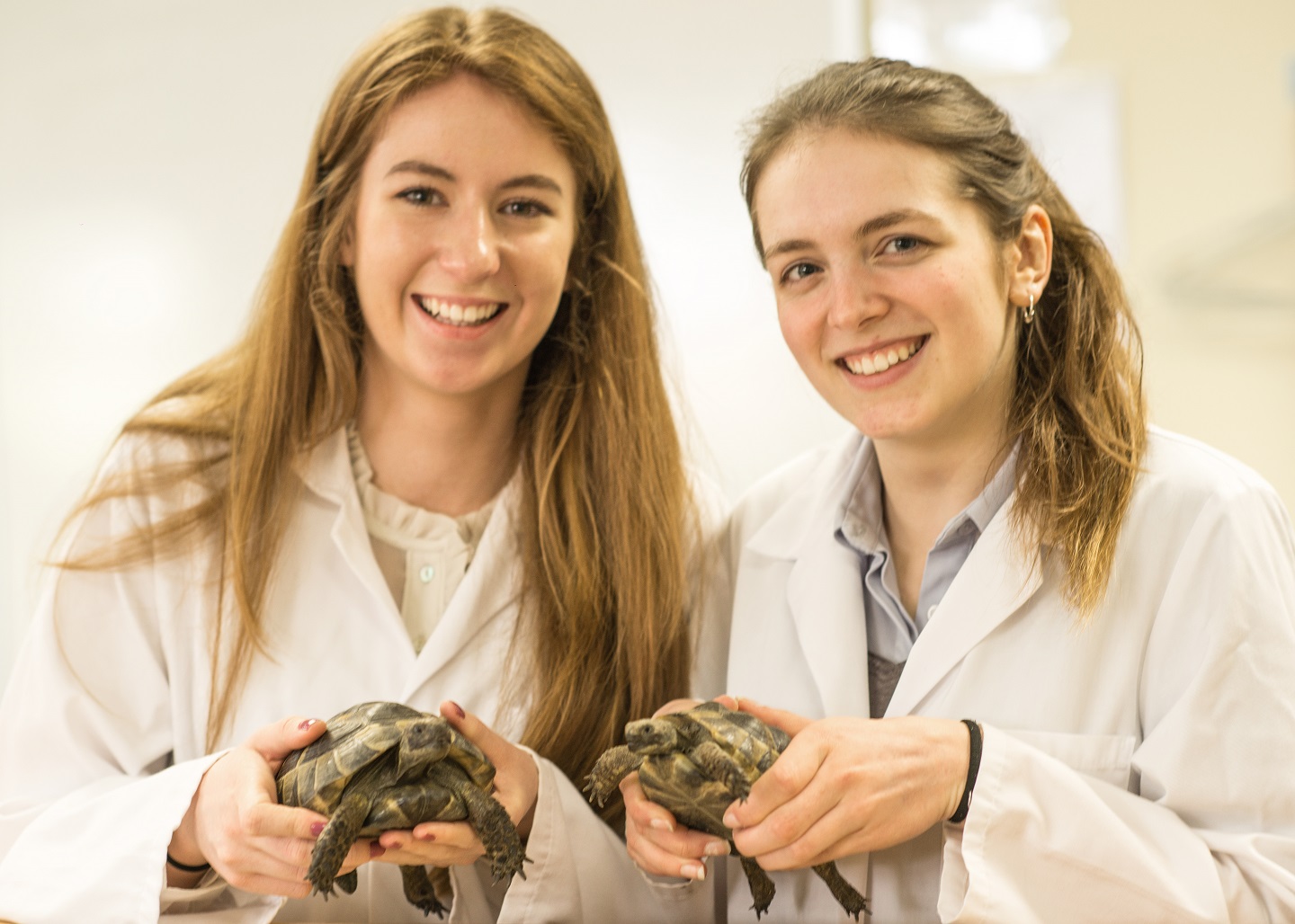GCSE Biology is the study of living organism and their structure, lifecycles, adaptations and environment. The underlying philosophy of the Department is to promote an enjoyment of learning; there is no better way to learn about Biology than through purposeful, practical activities as part of day to day teaching and learning.
Biology has something to offer to every student. The complex and diverse phenomena of the natural world can be described in terms of a small number of key ideas in biology. These ideas include: structure relating to function; chemicals cycling in ecosystems; the biochemistry of photosynthesis and respiration; cells as building blocks for tissues, organs and organ systems; ecosystems; adaptations; interactions between genome and with the environment; natural selection and biodiversity.
About the Curriculum
AQA GCSE Biology Grade 9 – 1
The GCSE is made up of seven topics, assessed by two written examinations.
- Topic 1 Cell biology
- Topic 2 Organisation
- Topic 3 Infection and response
- Topic 4 Bioenergetics
- Topic 5 Homeostasis and response
- Topic 6 Inheritance, variation and evolution
- Topic 7 Ecology
In the Third Form, all students follow common courses in Biology as part of the core curriculum. Many of the topics within these subjects are approached from an experimental perspective, and the science in the classroom is very much related to everyday life. Biology is a content-rich area of science and there are some topics from the GCSE specifications that have fitted well into the Third Form foundation course. At the end of this first year, pupils make decisions about the subjects they wish to follow to GCSE and decide whether to continue with the GCSE Dual Award (three lessons of Biology per week) or opt to study three separate sciences for GCSE (four lessons of Biology per week). The Biology course specification no longer has a practical or coursework component, leaving us free to explore experimental skills and research methods in ways we feel are most appropriate for the students at the various stages of their science education.
At the end of the Fifth Form, all candidates take two papers in Biology; Dual Award candidates' papers are both 1 ¼ hours, while separate GCSE candidates sit two 1 ¾ hour papers.
Learning approach
Independent learning is embedded within the curriculum in order to enable students to develop their self-knowledge, self-esteem and self-confidence. Practical investigations, presentations and self-assessment frequently take place. Furthermore, the Young Medics Society builds pupil confidence and improves presentation and interpersonal skills.
To encourage students to accept responsibility for their behaviour and to understand how they can contribute positively to the lives of those living around them, we carry out field studies in the local Ladywell Valley with due regard to the countryside code of practice. Farming, fishing, sustainability, climate change are all considered from a local, national and global scale. The Young Medics Society familiarise themselves with topical issues such as the formation, changes and provision of the NHS.
Enrichment
Fourth Form biologists take part in local fieldwork trips to study the Ladywell Valley freshwater stream ecology. As part of their AQA specifications, they also study intensive farming practices and productivity. In collaboration with the Lancing College Farm Project, we explore comparisons between free range and intensive farming.
The Jubilee Conservation Biology Garden, officially opened in July 2012, provides a wonderful educational resource. It benefits enormously from the input and development of the Farm’s ‘Green Group’ conservation initiatives.
In addition, the Department runs drop-in clinics every week.
Careers
Our career ethos is based upon the concept that throughout GCSE a pupil develops a range of essential skills: presentation, communication, mathematical, analytical, organisational, laboratory-based, field-based, reading, comprehension, and research. These transferable skills provide an excellent foundation on which to begin an A Level course in Biology. Should they wish to continue on a scientific career path, Senior School biologists find that their knowledge and skills provide them with a broad spectrum of opportunities.
MMI (multiple mini interviews) practice is incorporated into the GCSE course as a means of peer-assessment. This sequence of five short interviews, currently very popular in medical schools, allows interviewers to focus on one skill per interview such as mathematical, ethics of medicine, communication, knowledge-based and prioritisation skills.
 Close
Close
